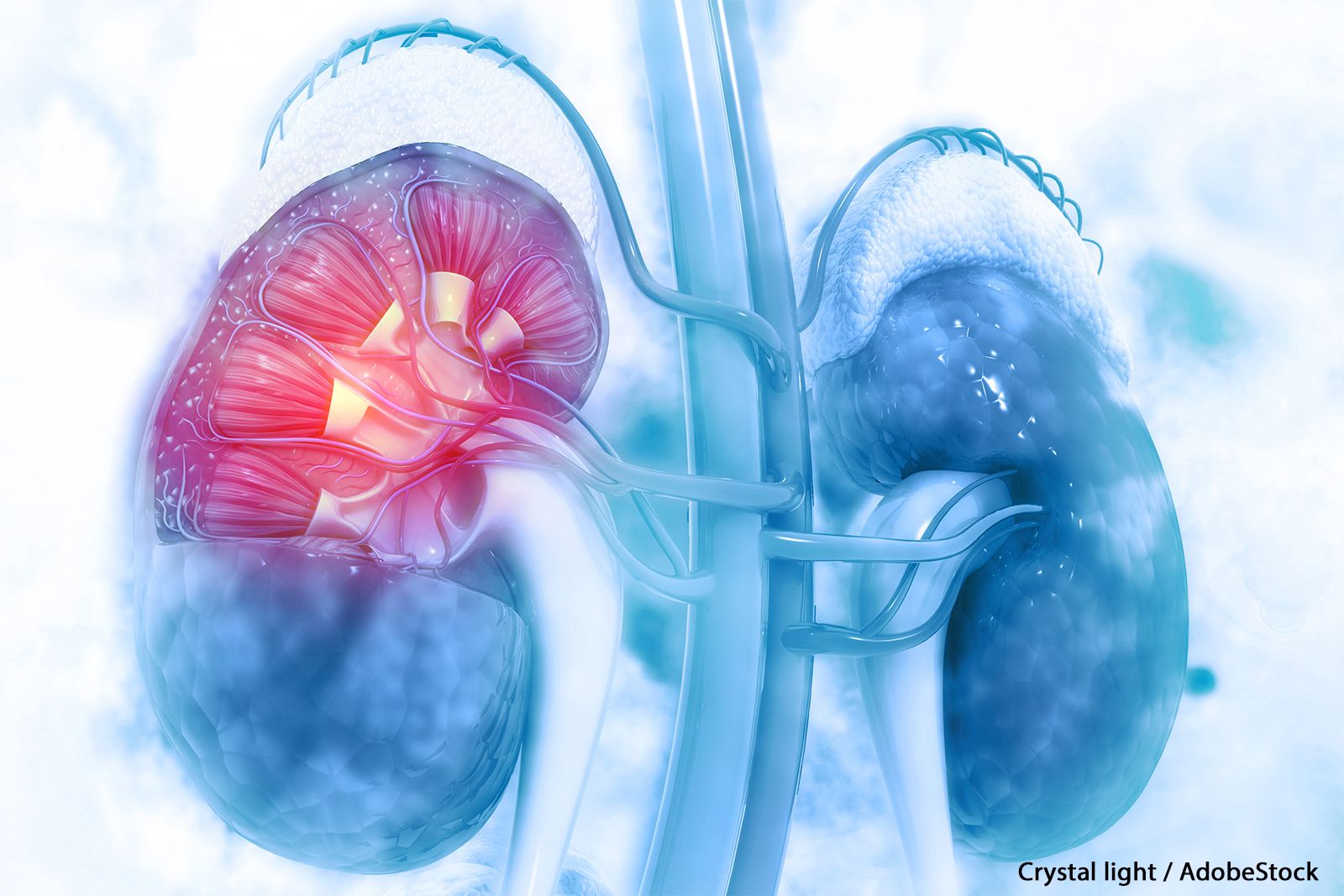Lenvatinib Combo Demonstrates Use in Frontline Advanced Non–Clear Cell RCC
Data from the phase 2 KEYNOTE-B61 trial indicate that pembrolizumab plus lenvatinib’s safety profile in the first-line treatment of patients with non-clear cell renal cell carcinoma is safe and manageable.
Investigators reported no deaths due to treatment-related adverse effects in the phase 2 KEYNOTE-B61 trial (NCT04704219).

Combining pembrolizumab (Keytruda) with lenvatinib (Lenvima) yielded anti-tumor activity and a manageable safety profile as a first-line treatment option for patients with advanced non–clear cell renal cell carcinoma (RCC) regardless of histology, according to findings from the phase 2 KEYNOTE-B61 trial (NCT04704219) presented at the 2023 American Society of Clinical Oncology (ASCO) Annual Meeting.
The objective response rate (ORR) per RECIST v1.1 criteria in the total population (n = 158) was 49.4% (95% CI, 41.3%-57.4%), which included complete responses (CRs) in 5.7% of patients and partial responses (PRs) in 43.7%. Additionally, the disease control rate (DCR) in the overall population was 82.3% (95% CI, 75.4%-87.9%), and the clinical benefit rate (CBR) was 71.5% (95% CI, 63.8%-78.4%).
Across different histology types, the ORR was 53.8% for those with papillary disease (n = 93), 27.6% for those with chromophobe disease (n = 29), and 52.4% for those with unclassified disease (n = 21). Additionally, the ORR was 66.7% for those with a translocation (n = 6) and 55.6% for those with other histology subtypes (n = 9).
Investigators observed any reduction in tumor burden for 88.0% of patients in the overall population and 91.4% of those with papillary disease. Additionally, any reduction in tumor burden occurred among 72.4% of patients with chromophobe disease, 95.2% of those with unclassified disease, and 86.7% of those with translocation and other histology subtypes.
In the phase 2 KEYNOTE-B61 trial, patients received 400 mg of pembrolizumab intravenously once every 6 weeks for a maximum of 18 cycles plus 20 mg of lenvatinib orally per day. Investigators performed tumor assessments at 12 weeks following treatment initiation then once every 6 weeks for 54 weeks and then once every 12 weeks thereafter.
The primary end point was ORR by blinded independent central review. Secondary end points included CBR, DCR, duration of response (DOR), progression-free survival (PFS), overall survival (OS), and safety and tolerability.
Patients with a histologically confirmed diagnosis of non–clear cell RCC and locally advanced or metastatic disease were eligible for enrollment on the trial. Additional eligibility criteria included receiving no prior systemic therapy, having measurable disease per RECIST v1.1 guidelines, and a Karnofsky performance status of at least 70%.
Patients had a median age of 60.0 years (range, 24-87). Most patients had no presence of sarcomatoid features (60.8%), lymph node metastases (64.6%), intermediate- or poor-risk disease (55.7%), and a PD-L1 combined positive score of 1 or higher (58.9%).
The median DOR was not reached (NR; range, 1.5+ to 15.3+), and 74.6% of patients who responded remained in response for at least 12 months. Additionally, 55 responders continued to receive study treatment at the time of data cutoff.
The median PFS was 17.9 months (95% CI, 13.5-NR), and the PFS rate at 12 months was 62.8% (95% CI, 54.2%-70.1%). Additionally, the median OS was NR (95% CI, NR-NR), and the 12-month OS rate was 82.2% (95% CI, 75.1%-87.5%).
Treatment-related adverse effects (TRAEs) of any grade occurred in 94.3%, including grade 3 to 5 TRAEs in 51.3%. Additionally, 34.2% of patients required lenvatinib dose reductions due to an AE, and 72.2% of patients experienced treatment interruption due to an AE.
Overall, 5.1% of patients died. Investigators reported that no deaths were due to a TRAE.
The most common grade 1/2 TRAEs included hypertension (57.0%), diarrhea (43.7%), hypothyroidism (36.7%), palmer-plantar erythrodysesthesia (28.5%), and dysphonia (27.8%).
Reference
Lee C, Gurney H, Atduev V, et al. First-line lenvatinib + pembrolizumab treatment across non-clear cell renal cell carcinomas: results of the phase 2 KEYNOTE-B61 study. J Clin Oncol. 2023;41(suppl 16):4518. doi:10.1200/JCO.2023.41.16_suppl.4518